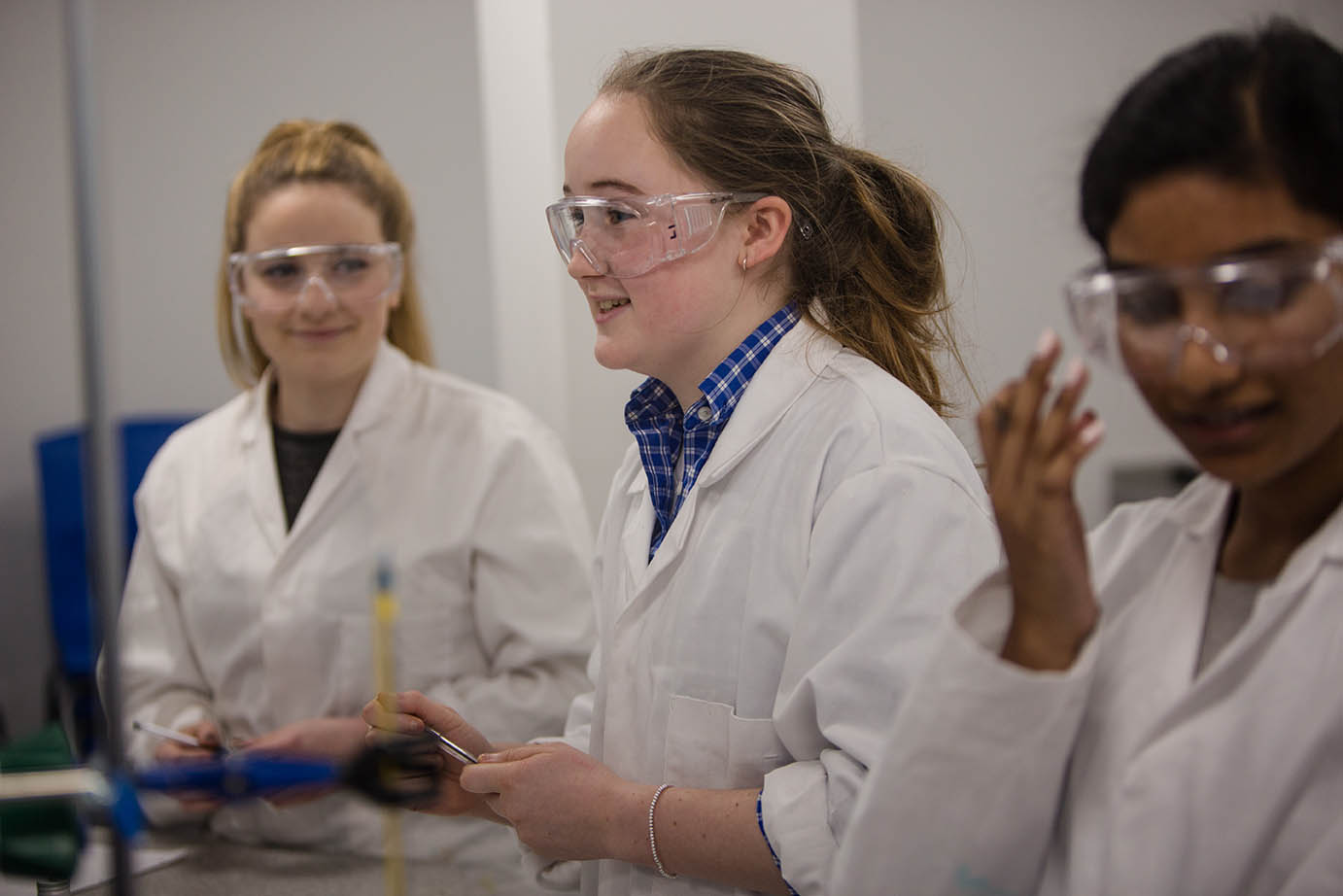A-Level Chemistry
 |
 |
Examination Board: OCR
Content is split into six teaching modules and a practical skills unit which is ongoing throughout the course.
- Module 1 – Development of practical skills in chemistry
- Module 2 – Foundations in chemistry
- Module 3 – Periodic table and energy
- Module 4 – Core organic chemistry
- Module 5 – Physical chemistry and transition elements
- Module 6 – Organic chemistry and analysis
Practical skills are embedded throughout all the content of this specification. Learners will be required to develop a range of practical skills throughout the course in preparation for the written examinations, in the broad areas of implementation, analysis and evaluation skills.
The course is divided into two sections:
- Year 1 - Calculations and basic organic chemistry/fundamental physical chemistry and periodic table
- Year 2 – Further organic chemistry and instrumental analysis/kinetics and enthalpy and transition metals
How this course is assessed
|
Component |
What is assessed |
Percentage of A2 |
Assessment method |
|
01 Periodic table, elements and physical chemistry |
Content from modules 1, 2, 3 and 5 |
37% of A level |
100 marks 2 hours 15 minutes Written paper |
|
02 Synthesis and analytical techniques |
Content from modules 1, 2, 4 and 6 |
37% of A level |
100 marks 2 hours 15 minutes Written paper |
|
03 Unified Chemistry
|
Content from all modules (1 to 6) |
26% of A level |
70 marks 1 hour 30 minutes Written paper |
|
04 Practical endorsement |
Practical skills |
Reported separately |
Internal assessment |
Essential Information
- Lab coats and appropriate footwear are essential for all practical work
- A scientific calculator will be required
- Chemistry leads to many future courses/degree subjects, for example, Medicine, Veterinary Science, Engineering and Natural Sciences
How can parents help?
- Provide opportunities for students to undertake work experience in their area of interest e.g. encourage them to explore local industries
- Suggest volunteering in relevant fields of study e.g. medics - with organisations offering care locally
- Membership of the Royal Society of Chemistry, subscription to New Scientist and/or Chemistry Review
- Any opportunities to visit the Royal Institution in London or science museums in London or further afield
Inspiring Science at Beaconsfield High School
As part of our commitment to inspire greater achievement in science and to encourage more of our students to consider careers in STEM fields, the school has recently built three new state-of-the-art science laboratories. One of these is a dedicated A level teaching space, which will be used for some of our A level Chemistry lessons.

 Beaconsfield High School
Beaconsfield High School